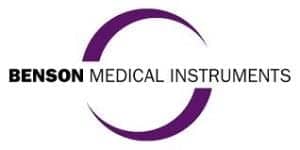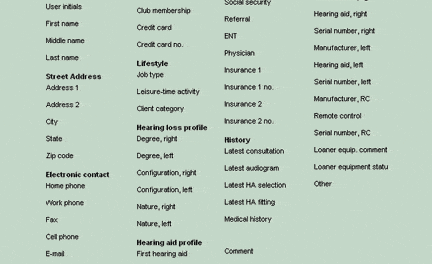Benson Medical Instruments, Minneapolis, Minn, developed analysis software to support revised baseline audiograms that meet the guidelines for hearing conservation as stipulated by the National Hearing Conservation Association (NHCA). Benson Medical, which designs and manufactures audiometers, spirometers, and software to manage hearing conservation and occupational spirometry programs for companies, has recently announced its new audiometric baseline revision feature that further supports updates to guidelines from the NHCA and the Council for Accreditation in Occupational Hearing Conservation (CAOHC).

Since the OSHA Hearing Conservation Amendment went into effect in 1983, reports Benson Medical, practices for revising baseline audiograms have differed from one professional reviewer to another. To increase the consistency of practice, The National Hearing Conservation Association (NHCA) set forth guidelines for professional reviewers in 1996 and most recently in 2013. These guidelines are reprinted in the CAOHC Hearing Conservation Manual, 5th edition.
Benson Medical Instruments developed analysis software to implement NHCA’s baseline revision algorithm, and professionals have used it for over a decade to analyze millions of audiograms. Users ran into problems, however, when converting existing hearing programs that did not comply with the NHCA method, leading many to forego using the recommended method of baseline revision.
Benson Medical Instruments is now addressing this issue for its CCA-200mini Plus computer-controlled audiometer and Solo-HC Hearing Conservation software by calculating baseline revision per the NHCA guidelines for future tests, and even for programs that had not used this method before. Specific capabilities for converting audiogram data from other formats or changing settings in the Benson Medical software are provided.
The professional reviewer can select any audiogram as a revised baseline, and the software will continue to analyze subsequent audiograms using the NHCA best practices. Further, reviewers can select any audiogram as a new initial baseline while preserving the audiograms and analysis from previous employment, all in the same record. This feature provides additional powerful and intelligent capability to new and existing hearing conservation programs with the flexibility to accommodate the real needs of hearing conservationists.
“As the leading solution provider to OSHA and MSHA hearing conservation programs, Benson Medical identified this need and provided what our customers required,” states David Mayou, sales manager, Benson Medical Instruments.
Source: Benson Medical Instruments Co.




